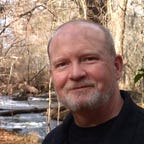THE MYTH OF A “BAD DEATH”
How our loved ones died is not as important as who they were to us
My daughter Jessica died of a fentanyl-laced heroin overdose in 2015. She was twenty-six years old. Shortly after Jessica’s death, a thoughtful aunt asked if I wanted to keep the details private. “Tell everyone the truth,” I said. “It doesn’t matter now.” But choosing to publicly acknowledge the manner of Jessica’s death did matter. In time we would learn just how much.
Studies show that some 70% of parents take three to four years to put a child’s death into perspective. It can take even longer when exacerbated by the loneliness, ostracizing, and condemnation that often accompany what is labeled and dismissed as a “bad death.”
Suicide and drug-related death survivors, researchers found, are consistently more troubled by grief than those who lost someone to accidental and natural causes. This is not to suggest that any specific group mourns more. One difference lies in the guilt they feel. Another seems to lie in the grace of others.
Clinicians observed that the challenges in grieving are “of immense proportion” for these parents. They find less compassionate responses from their significant others and the public-at-large due to the intense stigma against drug use and suicide. The former is an addiction, the latter mental illness. In both cases, parents would prevent the deaths if they could. Yet they continue to be subject to social censure.
The children are blamed and the parents are held at fault by others and themselves. These losses are seldom publicly mourned or socially supported. The relationship with the dead person is poorly recognized: their grief is rarely acknowledged in any meaningful way.
This is not only unjust; it is cruel. We know better. Whatever the facts of our loved ones’ deaths, the truth of their lives cannot be lost.
When we acknowledged the facts of my daughter’s overdose, I had no idea how meaningful our decision would prove to be. Honesty gives our memories substance. Now we are free to mourn Jessica as she was rather than a false image of her, a façade behind which we might feel constrained to grieve in private.
True, we detect a certain amount of public censure for a so-called “bad death,” but this response from strangers is insignificant. Our family has rallied round us. We have received support from Jessica’s friends and others who have also lost someone to overdose — a communion of grace and grief that secrets would have made impossible. After all, how our loved ones died is not nearly as important as who they were to us.
Excerpted from Wounded in Spirit (Paraclete Press, 2018) and “Family Secrets,” guest essay on PhilipYancey.com
